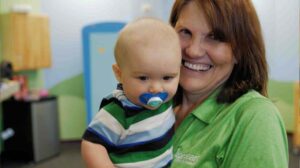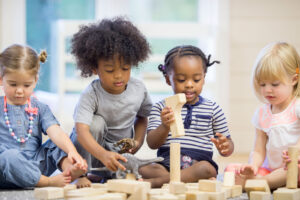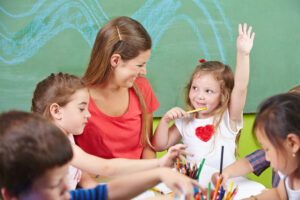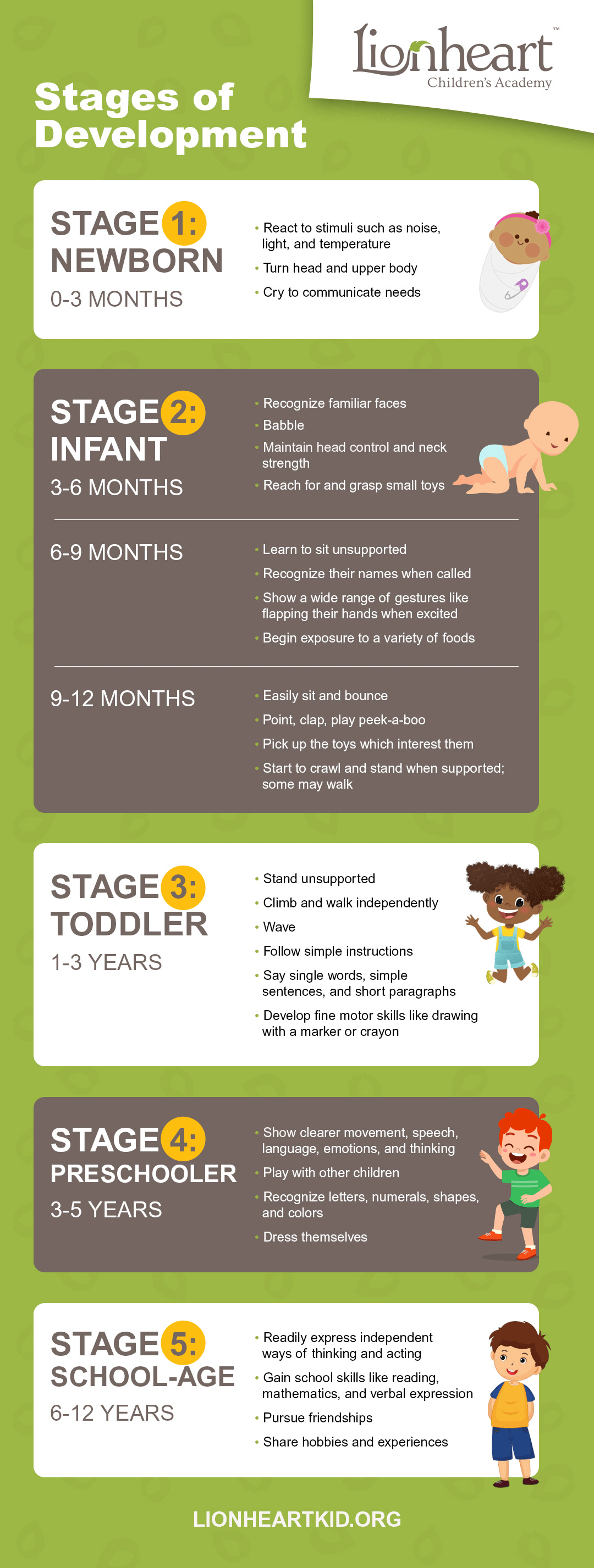Developmental Milestones
Navigating Birth-12 Month Milestones with Lionheart
Nurturing Infant Developmental Milestones with Care
Understanding the journey of your child’s growth is both fascinating and crucial, and Lionheart Children’s Academy wants to partner with you to do just that. Discover how our nurturing environment at Lionheart, with locations nationwide, supports every stage of your child’s development.
What are Developmental Milestones and Areas of Development?
Developmental milestones are behaviors or physical skills seen in infants and children as they grow and develop. These milestones encompass several areas: social and emotional skills, language development, cognitive skills, and gross and fine motor skills. Each milestone is a building block in a child’s development, and while all children develop at their own pace, these milestones provide a general guideline for expected achievements.
Development & Milestones for Infants (Birth-12 months)
Social and Emotional Skills
 From 2-4 months, infants start smiling spontaneously, marking early social interaction. Around 6-9 months, they enjoy playing and may show displeasure when it stops. By 12 months, they develop preferences and can show fear. Caregiver encouragement through smiles, play, and cuddles is vital for this growth.
From 2-4 months, infants start smiling spontaneously, marking early social interaction. Around 6-9 months, they enjoy playing and may show displeasure when it stops. By 12 months, they develop preferences and can show fear. Caregiver encouragement through smiles, play, and cuddles is vital for this growth.
Language Development Skills
Infants begin cooing and gurgling at 2-4 months, initiating their language journey. Progressing to babbling and sound imitation by 6-9 months, this is the basis for develop speech skills. Frequent talking, reading, and sound mimicry by caregivers can further enhance this language development.
Cognitive Skills
Between 2-4 months, infants track objects visually and recognize people from afar. By 6-9 months, they search for hidden objects and watch moving items, indicating growing curiosity. At 12 months, they experiment with objects, showing emerging problem-solving abilities. Caregivers can stimulate cognitive growth with safe objects for exploration and simple games.
Gross and Fine Motor Skills
Motor development in the first year includes head control at 2-4 months, rolling over and sitting at 6-9 months, and standing or taking steps at 12-16 months. Providing safe spaces and encouraging activities like crawling and standing facilitate this motor skill development.
Development and Milestones for Toddlers (1-2 Years)
 Social and Emotional Skills
Social and Emotional Skills
Toddlers aged 1-2 years show significant social and emotional development, displaying emotions like affection and the occasional temper tantrum by 18 months. By two years old, they imitate adults and older children, marking a key phase in social learning. Caregivers can aid this growth by modeling good behavior, facilitating peer interactions, and gently navigating their own emotional responses.
Language Development Skills
Rapid language development occurs in toddlers between 1-2 years. At 18 months, they often communicate with single words and pointing. By two years, simple sentences emerge, and children can follow basic instructions. Caregivers should support this by talking, reading, and listening attentively to their toddler’s speech.
Cognitive Skills
Cognitive skills in toddlers 1-2 years old progress rapidly. At 18 months, they understand the use of everyday objects, and by two years they start forming simple sentences and sorting shapes and colors. Encouraging this development through educational toys, interactive play, and thought-provoking activities is beneficial.
Gross and Fine Motor Skills
Motor skill development in 1-2 year olds is rapid. By 18 months, most are walking and possibly running. At two years, most have developed skills like standing on tiptoe and kicking a ball. Caregivers can foster these abilities with active play, a safe exploration environment, and varied physical activities.
Development & Milestones for Pre-K Children (3-5 years)
Social and Emotional Skills
 Pre-K children aged 3-5 show complex social and emotional development. Three-year-olds display various emotions and start learning social skills like turn-taking. By four, they prefer playing with peers, highlighting their social growth. Parents and caregivers can enhance these skills by organizing playdates and encouraging cooperative play.
Pre-K children aged 3-5 show complex social and emotional development. Three-year-olds display various emotions and start learning social skills like turn-taking. By four, they prefer playing with peers, highlighting their social growth. Parents and caregivers can enhance these skills by organizing playdates and encouraging cooperative play.
Language Development Skills
Language skills in 3-4 year-old Pre-K children rapidly advance. Three-year-olds follow multi-step instructions, while four-year-olds begin storytelling and clear communication. Caregivers can foster this by having regular conversations, reading complex stories, and encouraging diverse verbal expressions.
Cognitive Skills
Pre-K children aged 3-4 exhibit significant cognitive growth. Three-year-olds can use complex toys, showing cause-and-effect understanding. By age four, they start recognizing colors and numbers and can grasp basic counting. Aid their cognitive development by encouraging the use of puzzles, board games, and counting activities aids.
Gross and Fine Motor Skills
Gross and fine motor skill development in 3-4 year-old Pre-K children is vital. At three, they climb and run, showing improved coordination. By four, skills like hopping and balancing on one foot emerge. Caregivers can support this development with outdoor activities and games that enhance physical coordination.
Join Us on the Journey of Childhood Development
At Lionheart Children’s Academy, we understand the importance of each developmental milestone in your child’s growth. Our programs are tailored to develop, support, and celebrate these milestones, providing a loving and stimulating environment for your little one. We invite you to explore our programs and see first-hand how we can be part of your child’s developmental journey. Contact us now to take the first step in this exciting journey together!
